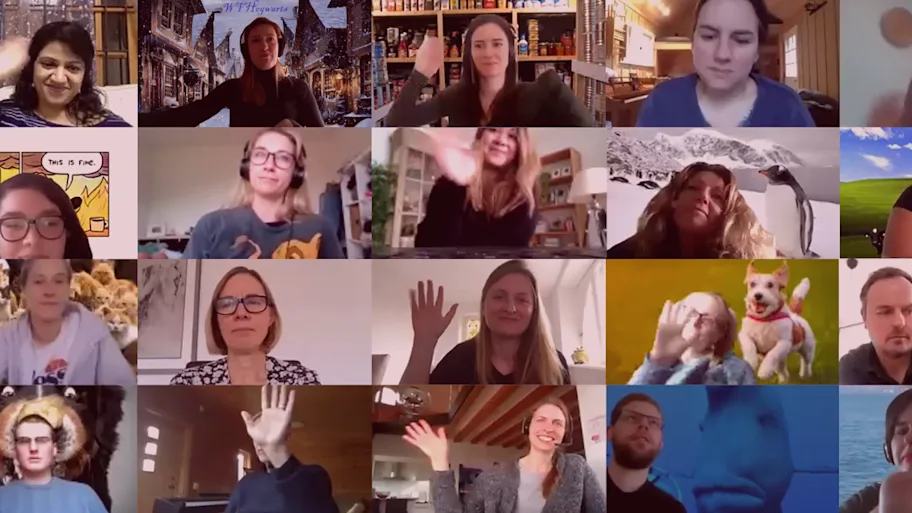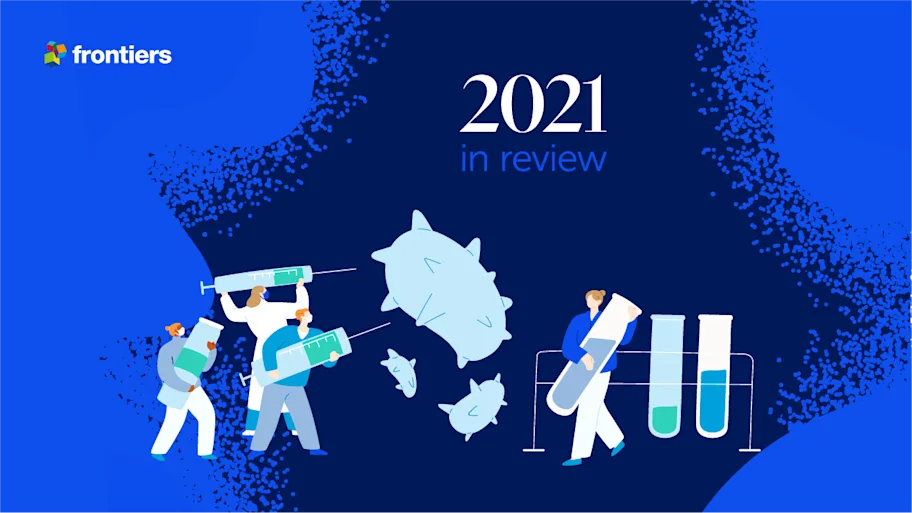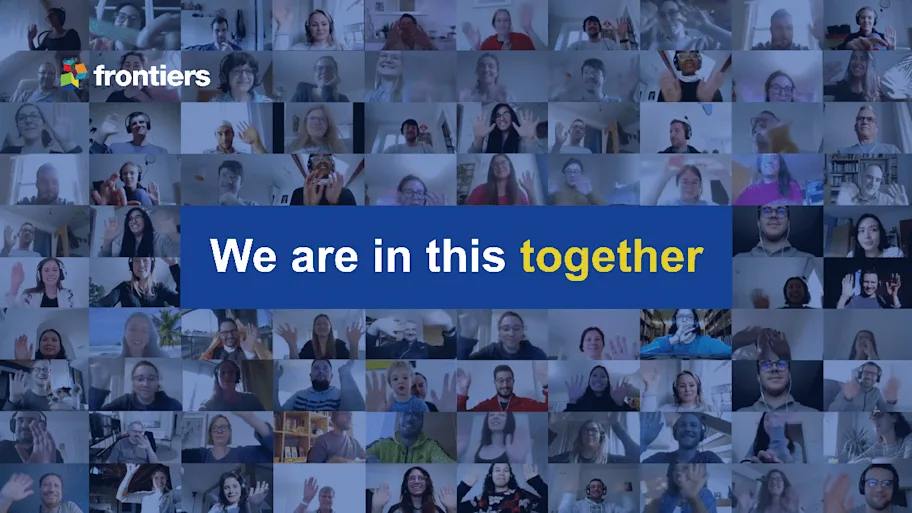
- Science news
- Featured news
- 2022 in review: a message from our CEO
2022 in review: a message from our CEO

As CEO of Frontiers, and on behalf of my colleagues, it is my pleasure to share with you some of the insights gained and lessons learned from the events of 2022.
Thanks to science, the threat of COVID-19 to our day-to-day lives has waned. The record-breaking development of effective vaccines and treatments for COVID-19 was accomplished by openly sharing scientific research articles through initiatives such as the CORD-19 Open Research dataset. Open science has proven what we can achieve if collaboration can flourish. It has shown that free, immediate, and unrestricted access to all publicly funded research for innovators, doctors, scientists, journalists, you, me, and people everywhere is absolutely critical if we are to find solutions to today’s most pressing global challenges at speed.
Earlier this year, new policy guidance from the United States White House Office of Science and Technology Policy (OSTP) stated that the results of taxpayer-supported research should be made immediately available to the American public, without restriction. It is a moment that encapsulates the lessons of COVID-19 and represents the progress we are now making. It is also one of celebration for everyone who has been fighting for open access to publicly funded research results for more than 20 years. President Joe Biden describes it perfectly when he said, “The taxpayers fund $5 billion a year in cancer research every year, but once it’s published, nearly all of that taxpayer-funded research sits behind walls. Tell me how this is moving the process along more rapidly.” The announcement and our commentary are available to read here.
However, it is no secret that tough times lie ahead. Climate change remains the challenge of our generation. We now need to urgently replicate the decisiveness and collaboration we saw for COVID-19 around open science into that space. Climate change is an existential threat which can be reversed and managed with political will and greater collaboration. Together, these can enable scientific breakthroughs at scale and pace and accelerate the research-innovation cycle. We saw it for COVID-19; now we need it for climate change. Without an urgent approach to the issue, as UN secretary general António Guterres warned leaders at this year’s COP27 “we are on a highway to climate hell with our foot still on the accelerator.” This is a crucial moment in our history; the decisions and actions we take over the next decade will leave a lasting impact on the future of people and the planet. We can avoid climate hell, but only if we open science up and are allowed to innovate and find new solutions at scale and speed.
Earlier this year, Professor Johan Rockström, talked to our community about how to keep our planet stable and resilient as part of our Frontiers Forum series. Professor Rockström beautifully outlines the actions we need to take if we are to keep Earth’s operating space safe for ourselves and our children; decisive, evidence-led decisions driven through open, collaborative science. It is a strong and important message, which has now been watched by more than 1 million viewers online and counting.
In that context, next year we look forward to the return of the Frontiers Forum both in person and virtually. Expert speakers will outline their visions of how science can help bring solutions to today’s most pressing challenges. The Forum 2023 will also play host to the announcement of the Frontiers Planet Prize winners, a new award celebrating scientific breakthroughs that have the greatest potential to stabilize our planet’s ecosystem. The Planet Prize is an international competition in which, through a jury of 100 leading sustainability scientists, 3 million Swiss Francs will be awarded to three winning researchers, each 1 million Swiss Francs, to support their research.
Frontiers has much to be proud of as we end 2022. This year, 1,196 engineers and publishing professionals from 17 countries across Europe, North America, and Asia joined our team. We are now over 2,200 Frontons, as we call our employees. Further, this year alone, more than 90,000 new associate and review editors joined our editorial boards, bringing the total number of editorial roles at Frontiers to more than 243,000.
Together with you, our authors, editors and reviewers, have set numerous new milestones. In 2022, we have published a record-breaking 120’000+ peer-reviewed research articles, bringing our total to 391,000 peer-reviewed, openly accessible published articles. These articles have received 740 million views and downloads this year alone, bringing our total up to 2.3 billion article views and downloads. Together, we can celebrate our steady climb of the ranks to the 3**rd** most-cited and 6**th** largest research publisher.
However, we are particularly proud of providing you, the research community, an enjoyable experience. This year, 92% of published authors rated their review experience as good or excellent and out of over 22’000 surveyed visitors to our website, 92% rated the quality of our published articles as good or excellent. Thank you for supporting us in our mission to make science open and enabling the solutions we need for healthy lives on a healthy planet.
Next year, we will continue to make strides in improving how we serve our community. Researcher centricity is a core Frontiers value; from improving how we communicate to continuing to improve our review forum, is top of our agenda for next year. We want to know what works for you. We want to make sure your invaluable contributions to the world of science count and make a difference as they become part of the scientific record.
With that, I would like to say thank you to each one of you for everything you do every day. Your commitment to open science is saving lives and is a big part of the reason there is a lot to be hopeful for as this year closes.
From all of us, and from my family to yours, I wish you all the best for the holiday season and the year ahead.
Warm regards,
Kamila






